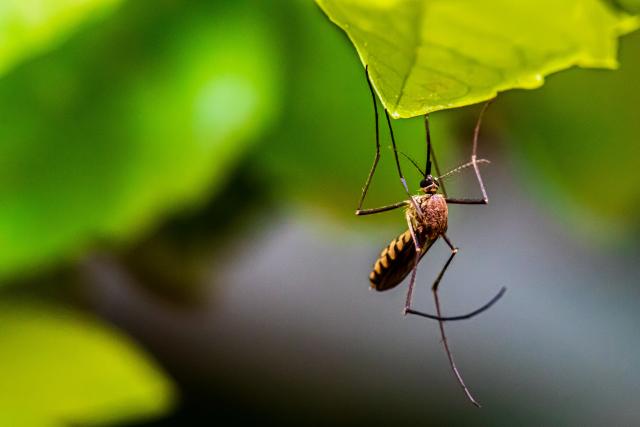Good rainfalls over Christmas and the New Year in many parts of Western Queensland have led to an early start for surging black fly and bush mosquito populations, public health authorities have warned.
Darling Downs Public Health Unit Environmental Health Services Manager Peter Boland said black flies, more commonly known as sandflies in Western Queensland, were aggressive biters found in areas
around streams and rivers.
“But bush mosquitoes can be as bad due to heavy rains in many parts of Western Queensland,’’ he said.
Mr Boland said while black flies, also known as sandflies, did not transmit specific disease, allergic reactions and bacterial skin infections may occur from bites and scratching the bites.
Mosquito bites on the other hand can result in a range of diseases, including Dengue Fever, Ross River Fever, Barmah Forest Virus, Kunjin, Murray River Encephalitis and even Japanese Encephalitis Virus.
“The bites from both black flies and mosquitoes can itch and persist for several days and can become infected,’’ he said.
Mr Boland said black flies were active only during the day and did not bite at night. Their peak activity period tends to occur from sunrise to 10am mid-morning, and then 4pm in the late afternoon to sunset.
Bush mosquitoes, on the other hand are most active in the evenings, nights and early mornings. Mr Boland said the very best protection against mosquito-borne diseases and against black fly bites was to avoid being bitten in the first place.
Black fly and mosquito bites can be avoided by:
• Applying insect repellent,
• Using physical barriers, such as nets on prams and cots, to protect babies under three months old,
• If camping, sleep under a mosquito net,
• Avoiding outdoor activity if possible during the periods when black flies and mosquitoes are active,
• Keeping your shirt sleeves and front closely fastened (shirts with zippered fronts keep flies out better than buttoned shirts),
• Tucking trousers inside socks or high boots
• Ensuring insect screens on doors and windows are intact
• Using a knock-down insect spray in living areas.
Mr Boland said personal repellents containing DEET or picaridin tended to last longer than other
repellents, depending on the concentration.
“Always use repellent in accordance with manufacturer’s instructions,’’ he said.
To prevent skin infections from black fly (sandflies) or bush mosquito bites:
• Try to avoid scratching the bite.
• Apply calamine lotion or another anti-pruritic preparation to bite areas to prevent itching,
• Keep affected limbs elevated,
• Wash hands before and after touching open wounds,
• Watch skin sores for signs of infection.
• If the bite areas become inflamed, clean with soap and water at least once a day, apply an antiseptic lotion and keep covered with a dry dressing.
• Application of a cool compress (i.e. icepack wrapped in cloth) also can reduce inflammation.
• If skin sores become hot, red, swollen or painful, see your doctor immediately.
Mr Boland said all Western Queensland residents also should take steps to eliminate mosquito breeding sites on their properties.
“Remove debris and vegetation from storm drains and ditches. Drain areas in and around yards and workplaces where water has temporarily accumulated,’’ he said.
“Empty all containers such as buckets, tyres, bird baths and plant pots and saucers weekly to reduce mosquito breeding. Mosquitoes also can breed in domestic water tanks, so checking the integrity of water tank screens and replacing damaged screens is a sound prevention measure.’’
He said anyone feeling unwell with high fever, headache, skin rash, neck stiffness, joint or muscle pain should see their doctor immediately.
You can find more information on black flies by visiting the Queensland Health website by visiting: conditions.health.qld.gov.au/HealthCondition/condition/20/122/814/black-flies
More information about mosquito-borne diseases can be found by visiting the Queensland Health website: qld.gov.au/health/conditions/all/prevention/mosquito-borne/index.html






